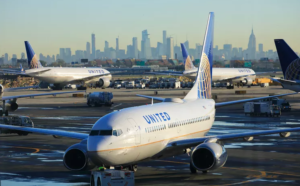In an unprecedented move, workers at Kaiser Permanente, the nation’s largest healthcare nonprofit, have initiated a strike. Over 75,000 union members are walking out of hospitals and medical offices due to an unresolved disagreement over staffing levels.
The Coalition of Kaiser Permanente Unions has labeled this work stoppage as the largest strike of healthcare workers in U.S. history. The strike will target Kaiser facilities in multiple states, including California, Colorado, Oregon, Virginia, the District of Columbia, and Washington state.
The strike began at 6 a.m. ET in D.C. and Virginia, with other states joining at 6 a.m. local time. This strike is expected to continue until Saturday morning.
Vocational nurses, emergency department technicians, radiology technicians, X-ray technicians, respiratory therapists, medical assistants, pharmacists, and many others are among the striking workers. The demands of the Kaiser unions include long-term investments to address staffing shortages, as well as improved pay and benefits.
Caroline Lucas, executive director of the Coalition of Kaiser Permanente Unions, highlights that the current staffing crisis has resulted in unsafe working conditions and declining patient care. Burnout, injuries, and an unsustainable situation for healthcare workers are leading to an exodus from the industry.
Kaiser Permanente, which serves roughly 13 million patients across multiple states, has contingency plans in place to ensure uninterrupted patient care during the strike. All hospitals and emergency departments will remain open.
This strike is the latest in a series of labor actions this year, as workers increasingly voice their concerns over pay, benefits, and staffing shortages. The effects of the Covid-19 pandemic have compounded these issues, leading to an even greater strain on healthcare workers.
Kaiser Permanente acknowledges the challenges faced by healthcare workers and pledges to reach a fair and equitable agreement. However, the union coalition claims that management has not adequately addressed their concerns about unsafe staffing levels. The three-day strike is a direct protest against what the coalition considers “bad faith bargaining” by Kaiser executives.
Despite reporting a $2 billion profit in the second quarter, compared to a year-earlier loss of $1.2 billion, Kaiser’s failure to address staffing concerns has ignited the largest healthcare workers’ strike in U.S. history.
(Source: Spencer Kimball | CNBC)









